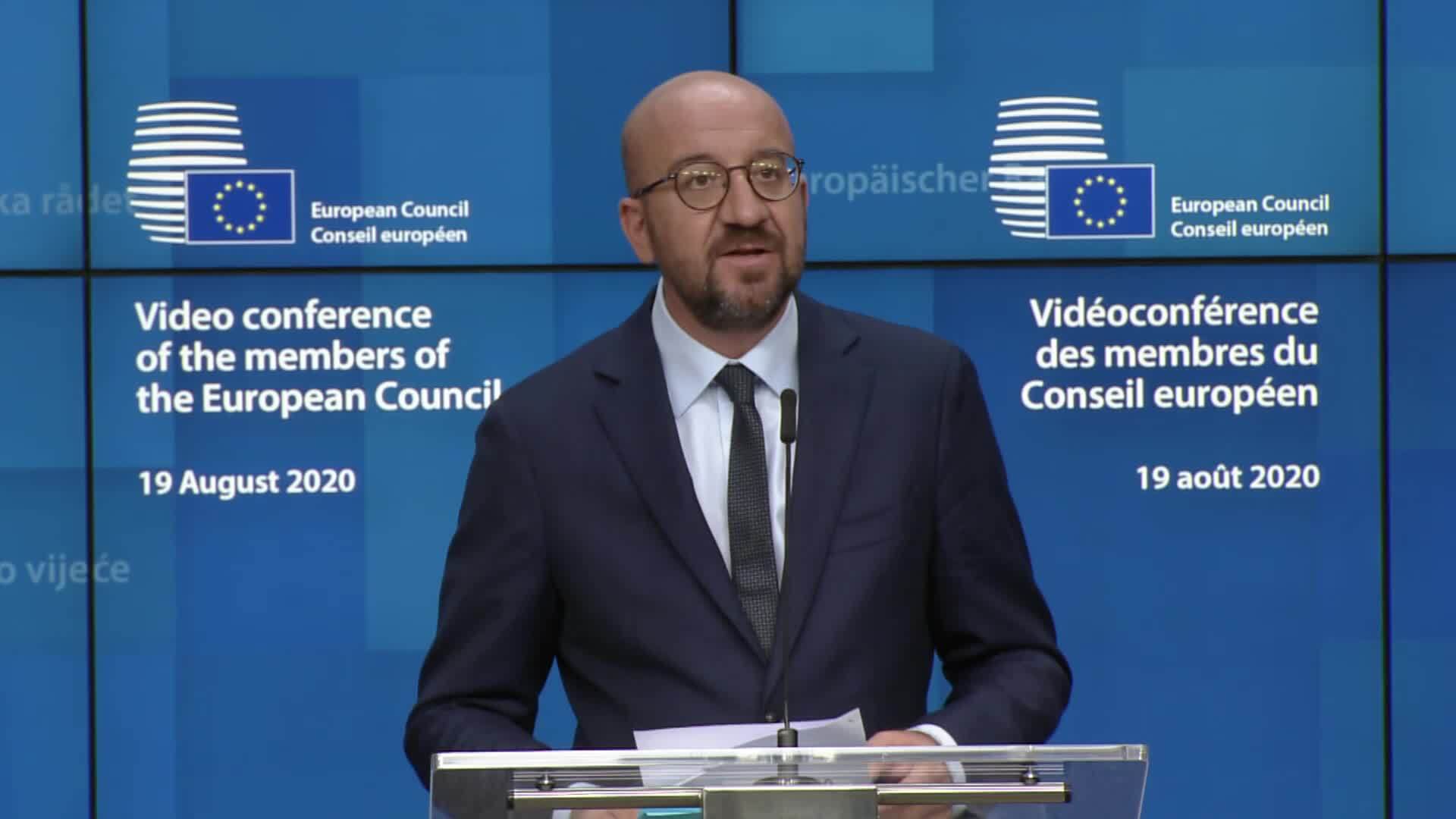Following an emergency virtual meeting of the European Council (EUCO) on Wednesday, European Union (EU) leaders announced that they would not recognize the results of the disputed Belarus election, arguing that President Alexander Lukashenko’s victory was “neither free nor fair, and did not meet international standards”.
EUCO President Charles Michel also said that the EU “will impose shortly sanctions on a substantial number of individuals responsible for violence, repression, and election fraud”. While stressing that the bloc stands in solidarity with the people of Belarus, leaders did not explicitly call for a new vote or recognize Lukashenko’s main challenger Svetlana Tikhanovskaya as the winner, but did offer to “accompany a peaceful transition of power” in the country. The Organization for Security and Cooperation in Europe (OSCE), of which both Russia and Belarus are members, has offered to facilitate dialogue between divergent factions in Belarus.
The Council also emphasized that the situation was not about geopolitics, but rather a national crisis, and therefore needed a locally-led solution. EU Commission President Ursula von der Leyen also announced a €53 million package in support of the people of Belarus comprising €1 million for supporting civil society and independent media, €2 million dedicated to victims of violence, and the remaining €50 million for COVID-19 emergency aid.
German Chancellor Angela Merkel said after the summit that there was “no doubt” of “massive rule violations” in the Belarus election, but said that she did not see an opportunity for mediation to resolve the crisis. “Mediation can only take place when all parties are in contact with one another,” Ms. Merkel told reporters, adding that though she reached out to Lukashenko, he refused to speak with her.
Additionally, the EU’s ability to demand any significant reform in Belarus is already limited, given that there are already harsh sanctions in place against both Belarus and Russia. European leaders will have to tread carefully so as to not antagonize Russia since military intervention is not going to be an option.
Meanwhile, Lukashenko is moving to consolidate his rule amid continuing protests throughout Belarus. The embattled leader threatened a renewed crackdown on opposition activists and demonstrators and ordered his security forces to quell the unrest. “There should no longer be any disorder in Minsk of any kind,” Mr. Lukashenko said in remarks reported by the official Belarusian news agency Belta. “People are tired,” he added. “People demand peace and quiet.” Lukashenko has also deployed security forces to its western borders in response to criticism from Poland, Lithuania, and Latvia.
EU Rejects Belarus Election Result, Sanctions Lukashenko Administration
The European Council said Lukashenko's victory was "neither free nor fair".
August 20, 2020

Press remarks by President Charles Michel following the video conference on 19 August 2020 SOURCE: EUROPEAN COUNCIL
